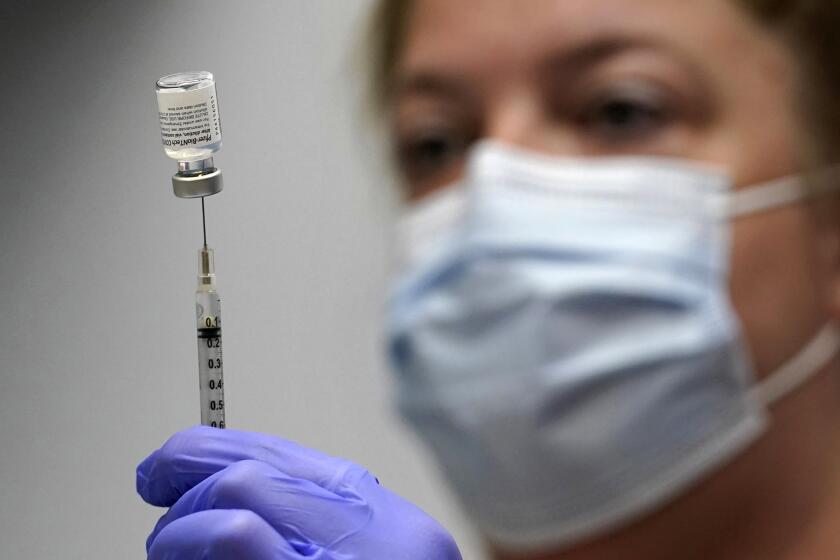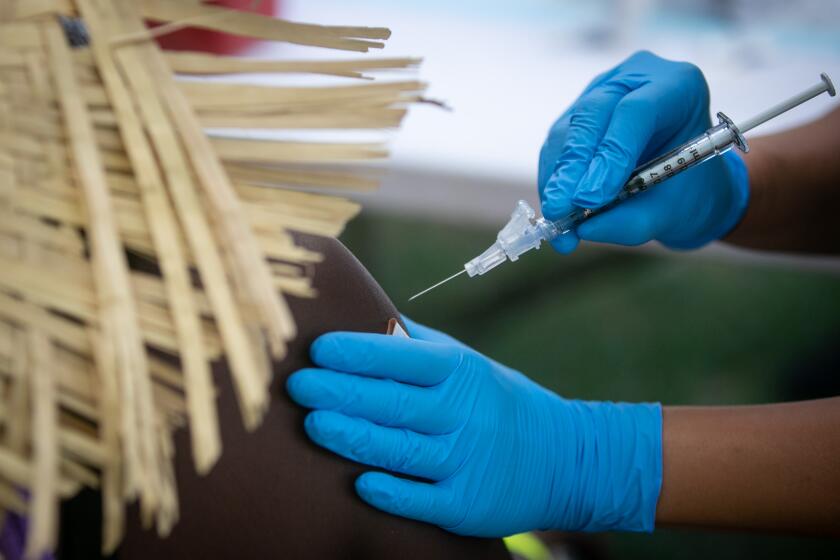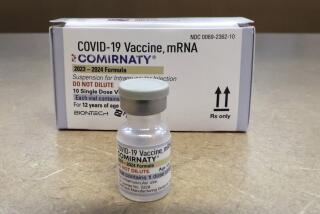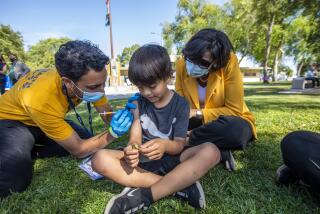CDC endorses Pfizer booster shots for seniors and for healthcare workers
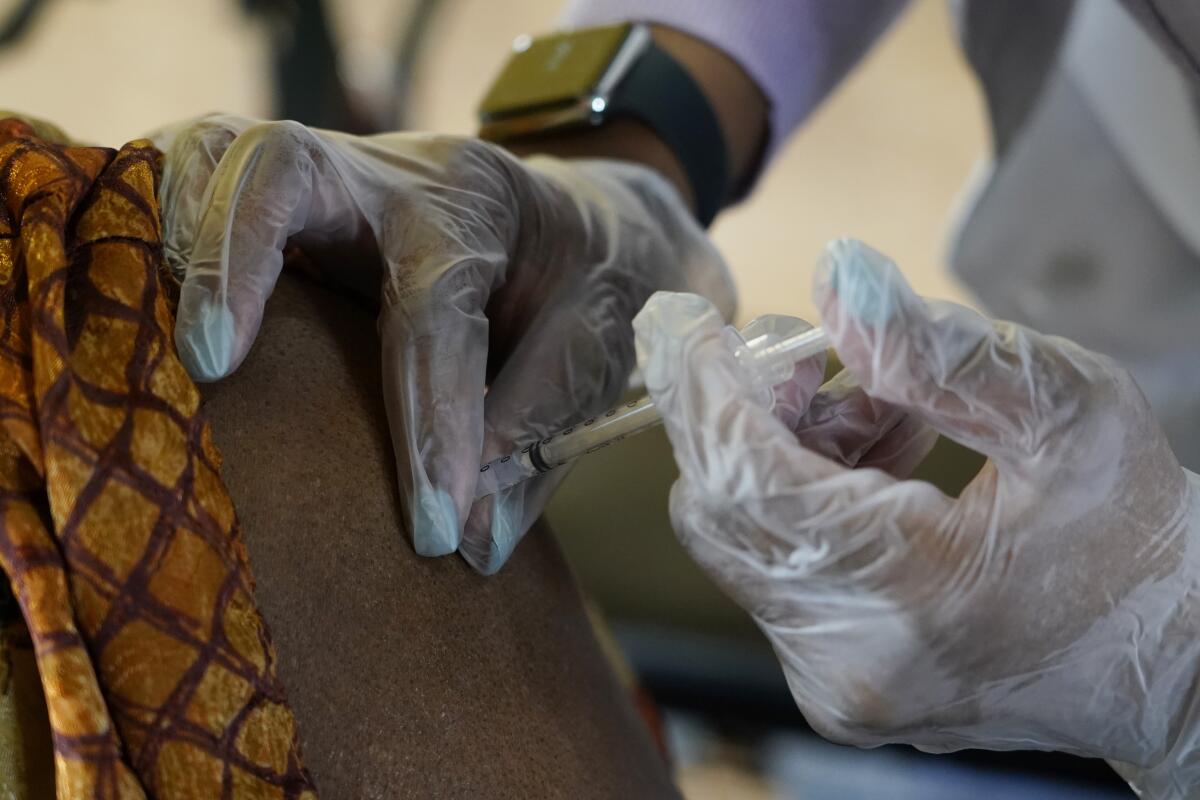
- Share via
The Centers for Disease Control and Prevention on Thursday endorsed booster shots for millions of older or otherwise vulnerable Americans, opening a major new phase in the U.S vaccination drive against COVID-19.
CDC Director Dr. Rochelle Walensky signed off on a series of recommendations from a panel of advisors late Thursday. The advisors said boosters should be offered to people 65 and older, nursing home residents and those ages 50 to 64 who have risky underlying health problems. The extra dose would be given once recipients are at least six months past their last Pfizer shot.
However, Walensky decided to make one recommendation that the panel had rejected.
The panel on Thursday voted against saying that people can get a booster if they are 18 to 64 years old and are healthcare workers or have another job that puts them at increased risk of being exposed to the virus.
But Walensky disagreed and put that recommendation back in, noting that such a move aligns with a Food and Drug Administration booster authorization decision earlier this week. The category she included covers people who live in institutional settings that increase their risk of exposure, such as prisons or homeless shelters, as well as healthcare workers.
The panel approves a COVID booster shot plan for high-risk Americans after rejecting a more sweeping proposal.
The panel had offered the option of a booster for those ages 18 to 49 who have chronic health problems and want one. But the advisors refused to go further and open boosters to otherwise healthy front-line healthcare workers who aren’t at risk of severe illness but want to avoid even a mild infection.
The panel voted 9 to 6 to reject that proposal. But Walensky decided to disregard the advisory committee’s counsel on that issue. In a decision several hours after the panel adjourned, Walensky issued a statement saying she had restored the recommendation.
“As CDC Director, it is my job to recognize where our actions can have the greatest impact,” Walensky said in a statement late Thursday night. “At CDC, we are tasked with analyzing complex, often imperfect data to make concrete recommendations that optimize health. In a pandemic, even with uncertainty, we must take actions that we anticipate will do the greatest good.”
Experts say getting the unvaccinated their first shots remains the top priority, and the panel wrestled with whether the booster debate was distracting from that goal.
All three of the COVID-19 vaccines used in the U.S. are still highly protective against severe illness, hospitalization and death, even with the spread of the extra-contagious Delta variant. But only about 182 million Americans are fully vaccinated, or just 55% of the population.
“We can give boosters to people, but that’s not really the answer to this pandemic,” said Dr. Helen Keipp Talbot of Vanderbilt University. “Hospitals are full because people are not vaccinated. We are declining care to people who deserve care because we are full of unvaccinated COVID-positive patients.”
One day after the FDA authorized offering booster shots of Pfizer’s COVID vaccine, California unveils a plan to ramp up inoculation rates.
Thursday’s decision represented a scaling back of the Biden administration plan announced last month to dispense boosters to nearly everyone to shore up their protection. Late Wednesday, the Food and Drug Administration, like the CDC panel, signed off on Pfizer boosters for a much narrower slice of the population than the White House envisioned.
The booster plan marks an important shift in the nation’s vaccination drive. Britain and Israel are already giving a third round of shots over strong objections from the World Health Organization that poor countries don’t have enough for their initial doses.
Walensky opened Thursday’s meeting by stressing that vaccinating the unvaccinated remains the top goal “here in America and around the world.”
Walensky acknowledged that the data on who really needs a booster right away “are not perfect.” “Yet collectively they form a picture for us,” she said, “and they are what we have in this moment to make a decision about the next stage in this pandemic.”
